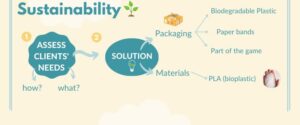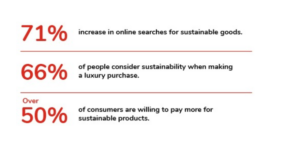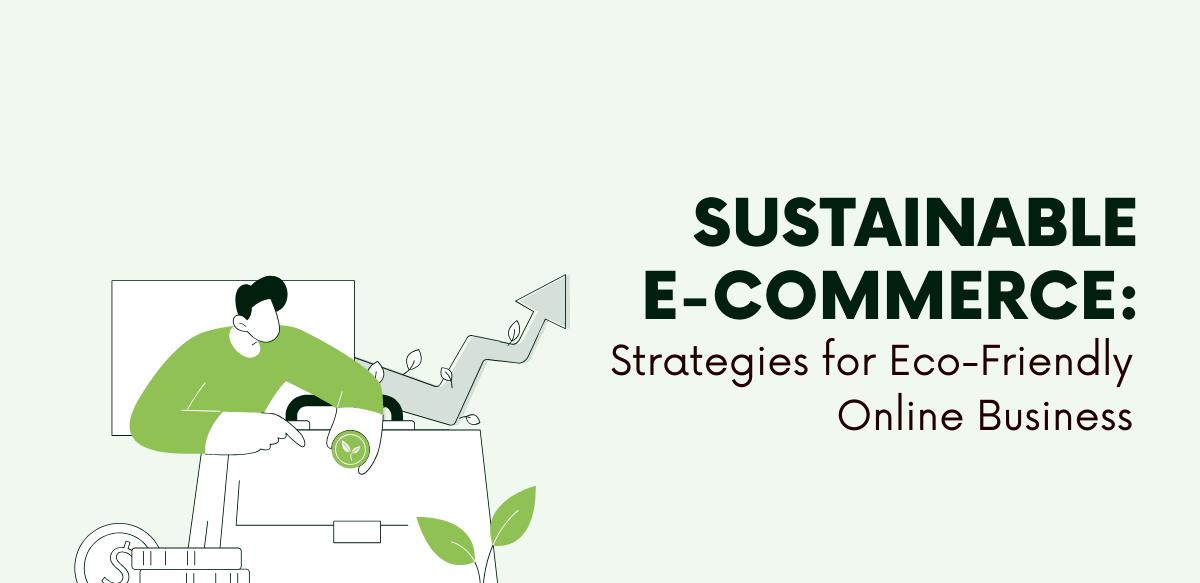As the world struggles with the challenges of climate change, environmental degradation, and social inequality, the importance of sustainable business practices has never been more pressing. The e-commerce industry, in particular, has a significant role to play in reducing its ecological footprint and promoting environmentally responsible practices. With the rise of online shopping, the demand for fast and affordable shipping has led to a surge in packaging waste, carbon emissions, and unsustainable supply chains. However, amidst this crisis, a beacon of hope emerges. Selly Africa, a pioneering e-commerce platform, is revolutionizing the way businesses operate online, by providing innovative solutions that not only drive growth but also prioritize the planet’s well-being. In this article, we’ll delve into the inspiring story of Selly Africa and explore how it’s empowering businesses to thrive sustainably, while making a positive impact on the environment and communities.
The urgency of sustainable e-commerce
The rapid growth of e-commerce has led to a significant increase in carbon emissions, packaging waste, and resource depletion. The convenience of online shopping comes at a cost, with the production, transportation, and packaging of products contributing to a substantial environmental footprint. The alarming rate of deforestation, pollution, and climate change is a stark reminder of the need for sustainable practices in the e-commerce industry. The staggering statistics are hard to ignore: e-commerce packaging alone generates over 1 billion tons of waste annually, while the transportation of goods leads to a whopping 22 million metric tons of CO2 emissions. Furthermore, the fast fashion and electronics industries, which are among the largest contributors to e-commerce, are notorious for their resource-intensive production processes and short product lifecycles. The environmental impact of e-commerce is a ticking time bomb, and it’s imperative that businesses take immediate action to reduce their ecological footprint and adopt sustainable practices that prioritize the health of our planet.
Building a sustainable e-commerce business

Building a sustainable e-commerce business is a continuous journey, but every step counts. Here’s how to get started:
Assessing your current environmental footprint: This critical step will help you understand the impact of your business on the environment and identify areas for improvement. Take a closer look at your operations, from sourcing and production to packaging and shipping. Consider the materials used, the energy consumed, and the waste generated. Evaluate your supply chain, examining the environmental and social practices of your partners and vendors. Ask yourself questions like: What are the environmental implications of your product packaging? Are your shipping methods carbon-intensive? Do your suppliers have sustainable practices in place? When you look thorough inventory of your current environmental footprint, you’ll be able to pinpoint areas where you can make significant changes to reduce your impact and create a more sustainable e-commerce business.
Sustainable sourcing and supply chain management: As an e-commerce business, your supply chain is the backbone of your operations, and it’s crucial to ensure that it’s sustainable and environmentally friendly. Partner with suppliers who share your values and commitment to sustainability, and working closely with them to reduce waste, minimize carbon footprint, and promote fair labor practices. It’s essential to scrutinize your suppliers’ practices, from the materials they use to their packaging and shipping methods, to ensure that they align with your eco-friendly goals. In doing so, you can reduce the environmental impact of your products, improve your brand’s reputation, and appeal to the growing number of consumers who prioritize sustainability.
Reducing waste and carbon emissions in your operations: This is where the rubber meets the road, and every small change can add up to make a significant impact. From the packaging materials used to ship products to the energy consumption of your fulfillment center, every aspect of your operations can be optimized to minimize waste and reduce carbon emissions. Through implementing sustainable practices, such as using recycled and biodegradable packaging, reducing energy consumption through the use of LED lighting and energy-efficient equipment, and implementing a recycling program for paper and cardboard waste, you can significantly lower your carbon footprint and reduce waste. Additionally, consider implementing a circular economy model, where products are designed to be recycled or reused, reducing the need for new raw materials and waste generation. The holistic approach of reducing waste and carbon emissions, creates a more sustainable and environmentally friendly e-commerce business that not only benefits the planet but also resonates with your customers and sets your brand apart from the competition.
Eco-friendly packaging and shipping options: The traditional packaging materials used in e-commerce, such as plastic bubble wrap, foam inserts, and Styrofoam peanuts, are not only suffocating our planet with waste, but also contributing to the staggering 30% of greenhouse gas emissions attributed to the logistics industry. However, by adopting eco-friendly packaging and shipping options, you can significantly reduce your carbon footprint, appeal to the growing demographic of environmentally conscious consumers, and even save on costs. Opt for biodegradable packaging materials like recycled paper, cardboard, and mushroom-based alternatives, to carbon offsetting and sustainable shipping carriers. Making these simple yet impactful changes, you can not only contribute to a more sustainable future, but also reap the benefits of increased customer loyalty, improved brand reputation, and a competitive edge in the market
Communicating your sustainability efforts to customers: Transparency is key in building trust and credibility with your target audience. Your customers want to know that their purchases are not only benefiting them but also the environment. Sharing your eco-friendly practices, you can create a sense of community and responsibility among your customers, fostering loyalty and advocacy. Start by highlighting your sustainable initiatives on your website, social media, and marketing campaigns. In addition, use clear and concise language to explain how your business is reducing its carbon footprint, conserving resources, and promoting eco-friendly practices. Also, consider creating a dedicated page on your website that outlines your sustainability mission, goals, and achievements. Moreover, share behind-the-scenes stories, infographics, and videos that showcase your eco-friendly efforts, such as using recycled packaging, reducing energy consumption, or sourcing products from environmentally responsible suppliers.
Continuous improvement and monitoring progress: Greening your online store is not a one-time achievement, but rather an ongoing process. Continuous improvement and monitoring progress are crucial to ensuring that your eco-friendly initiatives remain effective and aligned with your business goals. Regularly assess your operations, supply chain, and customer interactions to identify areas for improvement and opportunities to reduce your environmental footprint. Additionally, implement a system to track and measure your sustainability metrics, such as carbon emissions, waste reduction, and energy consumption. This will enable you to make data-driven decisions and adjust your strategies accordingly.
Selly Africa: A sustainable e-commerce solution
Selly Africa, a revolutionary platform empowers businesses to thrive while minimizing their ecological footprint. It is designed to bridge the gap between convenience and sustainability, providing a holistic approach to e-commerce that prioritizes the health of our planet. By leveraging cutting-edge technology, sustainable practices, and eco-friendly logistics, the platform enables businesses to reduce their environmental impact without compromising on growth or customer satisfaction. With a mission to green the e-commerce industry, Selly Africa is paving the way for a more responsible and environmentally conscious online shopping experience through:
Reduced waste: Selly Africa offers features like promoting minimal or recycled packaging materials during checkout, encouraging a more sustainable approach.
Sustainable sourcing: They can connect you with a network of eco-conscious suppliers who prioritize responsible practices.
Logistics optimization: Selly Africa’s data-driven insights help you optimize fulfillment routes, reducing delivery distances and fuel consumption.
Transparency and advocacy: They encourage businesses to communicate their sustainability efforts, fostering a culture of responsibility within the e-commerce landscape.
Success stories: Businesses making a positive impact with Selly Africa
As the e-commerce landscape continues to evolve, it’s heartening to see businesses that are not only thriving but also making a positive impact on the environment. At Selly Africa, we’re proud to have played a role in empowering these eco-conscious entrepreneurs to achieve their sustainability goals. Take, for instance, the story of GreenCycle, a startup that specializes in upcycled home decor products. With Selly Africa’s platform, they were able to reduce their carbon footprint by 30% and increase their sales by 25% within just six months. Then there’s EcoWear, a fashion brand that uses sustainable materials and practices. By leveraging Selly Africa’s logistics and supply chain management tools, they were able to reduce their waste generation by 40% and expand their customer base to over 10 countries. These success stories, and many more like them, are a testament to the power of sustainable e-commerce and the impact that Selly Africa is having on the industry.
The future of sustainable e-commerce: Trends and opportunities

As the world continues to face the challenges of climate change, environmental degradation, and social inequality, the future of sustainable e-commerce is looking brighter than ever. With consumers increasingly demanding eco-friendly and socially responsible practices from businesses, the e-commerce industry is poised to undergo a significant transformation. In the coming years, we can expect to see a surge in the adoption of sustainable practices, such as circular economy models, carbon offsetting, and supply chain transparency. The rise of conscious consumerism will also lead to a greater emphasis on product design, packaging, and logistics that minimize waste and environmental impact. Furthermore, technological advancements in areas like artificial intelligence, block-chain, and the Internet of Things (IoT) will enable businesses to optimize their operations, reduce energy consumption, and promote more efficient use of resources. As Selly Africa continues to empower businesses to thrive sustainably, we can expect to see a new era of e-commerce emerge, one that is not only profitable but also environmentally conscious and socially responsible.
Conclusion
In conclusion, it’s clear that sustainability is no longer a nicety, but a necessity. With the growing awareness of environmental degradation and social responsibility, consumers are increasingly demanding that businesses prioritize the planet alongside profits. Selly Africa is at the forefront of this movement, empowering businesses to thrive sustainably and make a positive impact on the environment. By providing a platform that supports eco-friendly practices, promotes local sourcing, and reduces waste, Selly Africa is revolutionizing the way we think about e-commerce. As we look to the future, it’s exciting to consider the possibilities of a greener, more sustainable e-commerce industry – and Selly Africa is leading the charge.

